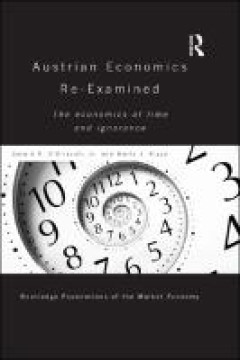Ditapis dengan

Informatics in the future :proceedings of the 11th European Computer Science …
This volume discusses the prospects and evolution of informatics (or computer science), which has become the operating system of our world, and is today seen as the science of the information society. Its artifacts change the world and its methods have an impact on how we think about and perceive the world. Classical computer science is built on the notion of an “abstract” machine, which ca…
- Edisi
- -
- ISBN/ISSN
- 9783319557359
- Deskripsi Fisik
- xi, 109p. : ill.
- Judul Seri
- -
- No. Panggil
- 004 INF i

Social concertation in times of austerity:European integration and the politi…
Why do governments still negotiate with trade unions and employers in the design of labour market and welfare reforms despite the steady decline of trade union membership almost everywhere in Europe? Social Concertation in Times of Austerity investigates the political underpinnings of social concertation in this new context with a focus on the regulation of labour mobility and unemployment prot…
- Edisi
- -
- ISBN/ISSN
- 9789048512997
- Deskripsi Fisik
- 258 pages : illustrations ; 23 cm.
- Judul Seri
- -
- No. Panggil
- 338.9436 AFO s

Austrian economics re-examined :the economics of time and ignorance
Austrian Economics Re-examined: The Economics of Time and Ignorance is an expanded version of the 1996 edition of The Economics of Time and Ignorance. This work is a classic statement of the role of subjectivism, radical uncertainty and change through real time in Austrian economics specifically, and in modern economics more generally. The new book contains the full text and Introductions of th…
- Edisi
- -
- ISBN/ISSN
- 9781317691365
- Deskripsi Fisik
- xii. ;297 p.
- Judul Seri
- -
- No. Panggil
- 330.157. GER a

A Good Example of Peaceful Coexistence? The Soviet Union, Austria, And Neutra…
This monograph, based on newly declassified sources from Western and Russian archives as well as on communist texts about international law and neutrality, is the first English-language account of Soviet policy towards neutral yet capitalist Austria during the Cold War. In order to make neutrality a model for the West, the Kremlin presented the unique Soviet-Austrian relationship as "a good exa…
- Edisi
- -
- ISBN/ISSN
- -
- Deskripsi Fisik
- Knowledge Unlatched (KU)
- Judul Seri
- -
- No. Panggil
- -
 Karya Umum
Karya Umum  Filsafat
Filsafat  Agama
Agama  Ilmu-ilmu Sosial
Ilmu-ilmu Sosial  Bahasa
Bahasa  Ilmu-ilmu Murni
Ilmu-ilmu Murni  Ilmu-ilmu Terapan
Ilmu-ilmu Terapan  Kesenian, Hiburan, dan Olahraga
Kesenian, Hiburan, dan Olahraga  Kesusastraan
Kesusastraan  Geografi dan Sejarah
Geografi dan Sejarah